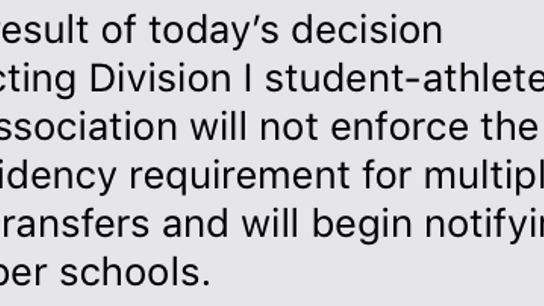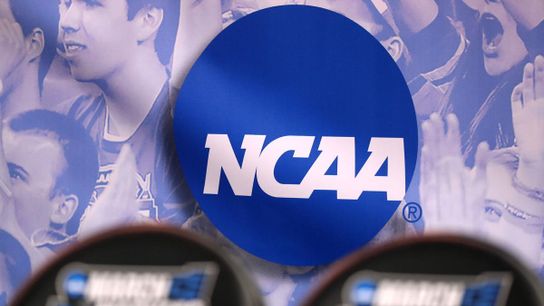Back in January, the NCAA Division I Council moved to crack down on undergraduate athletes transferring multiple times and playing immediately at their second, third or fourth destination. Anyone looking for "guardrails" around the "Wild, Wild West" of the transfer portal was no doubt pleased: unless an athlete had an urgent, documented reason why it was necessary for them to transfer a second time and play immediately as an undergrad, they would have to stick it out at their current school or find a place willing to wait a year to play them.
Reasonable enough, yes?
Turns out, the answer is no.
On Wednesday, U.S. District Judge John Preston Bailey in northern West Virginia ruled in favor of the state of West Virginia and six other states who said the NCAA guideline violated federal antitrust law. Bailey issued a temporary restraining order that those who transferred a second time can compete over the 14-day window covered by the TRO.
A hearing on the restraining order is scheduled for Dec. 27.
In June, it was reported that the NCAA had been denying the "overwhelming" majority of immediate eligibility appeals from multi-time transfers. All those athletes, and any who have sense transferred a second time but forced to serve a year-in-residence, are now eligible to play for the next 14 days. Parker's ruling also barred schools who play previously-ineligible athletes from being retroactively punished during the TRO window.
The most notable case this fall of the NCAA attempting to enforce its year-in-residence rule in regards to a multi-time transfer was North Carolina wide receiver Tez Walker. The former North Carolina Central and Kent State was ruled ineligible in September but was granted his eligibility the following month.
Should Bailey's ruling hold up throughout the entire legal process, college athletes would be eligible to transfer as often as they'd like without serving a year-in-residence.
The NCAA announced it would abide by Wednesday's ruling.

While Wednesday's ruling is a setback for the "guardrails" crowd, it could ultimately lead to a win for the NCAA on Capitol Hill. The organization and its members are in the midst of an ongoing, fervent lobbying effort for an antitrust exemption for Congress, and the Bailey ruling could bolster their argument that a reasonable set of rules, enforceable by the NCAA and immune from the courts, could be in athletes' best interest in the long term.
As always, stay tuned to The Scoop for the latest.
